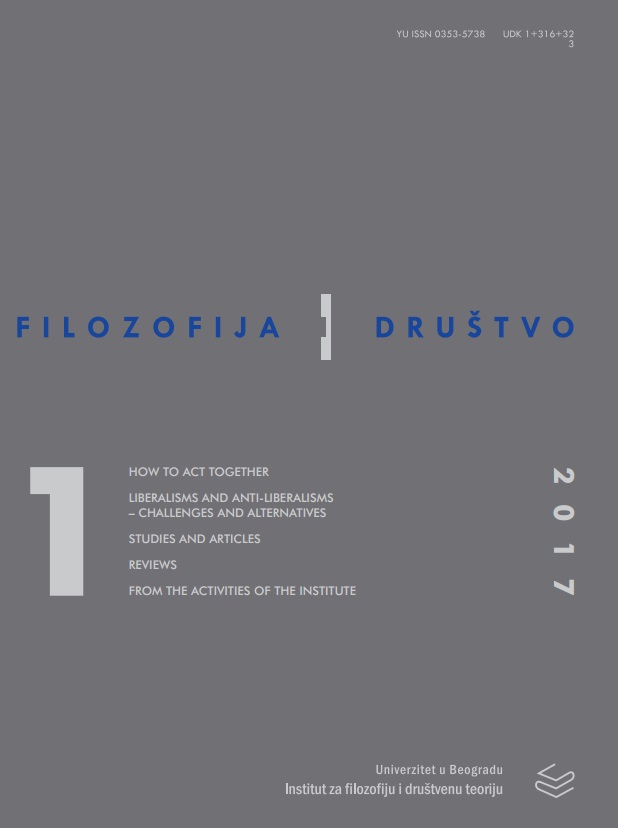The Intersubjectivist Conception of Autonomy: Axel Honneth’s Neo-Hegelian Critique of Liberalism
The Intersubjectivist Conception of Autonomy: Axel Honneth’s Neo-Hegelian Critique of Liberalism
Author(s): Marjan Ivković Subject(s): History and theory of political science, Comparative politics
Published by: Institut za filozofiju i društvenu teoriju
Keywords: Honneth; liberalism; autonomy; freedom,; intersubjectivity; individualism
Summary/Abstract: The paper reconstructs Axel Honneth’s Neo-Hegelian critique of the classical-liberal conception of autonomy and his articulation of an alternative view of personal autonomy as the property of certain types of intersubjective relations of recognition in modernity, developed most systematically in Honneth’s recent work Freedom’s Right (Das Recht der Freiheit). The analysis of Freedom’s Right focuses on reconstructing Honneth’s critique of the ‘negative’ and ‘reflexive’ types of freedom (autonomy) articulated within the liberal tradition, and contrasting the former two with the conception of ‘social freedom’ (the intersubjectivist conception of autonomy) that Honneth formulates through a detailed ‘normative reconstruction of modernity’. Finally, the paper considers the proximity of Honneth’s ‘Hegelian liberalism’ to communitarianism.
Journal: Filozofija i društvo
- Issue Year: 28/2017
- Issue No: 1
- Page Range: 74-89
- Page Count: 16
- Language: English

